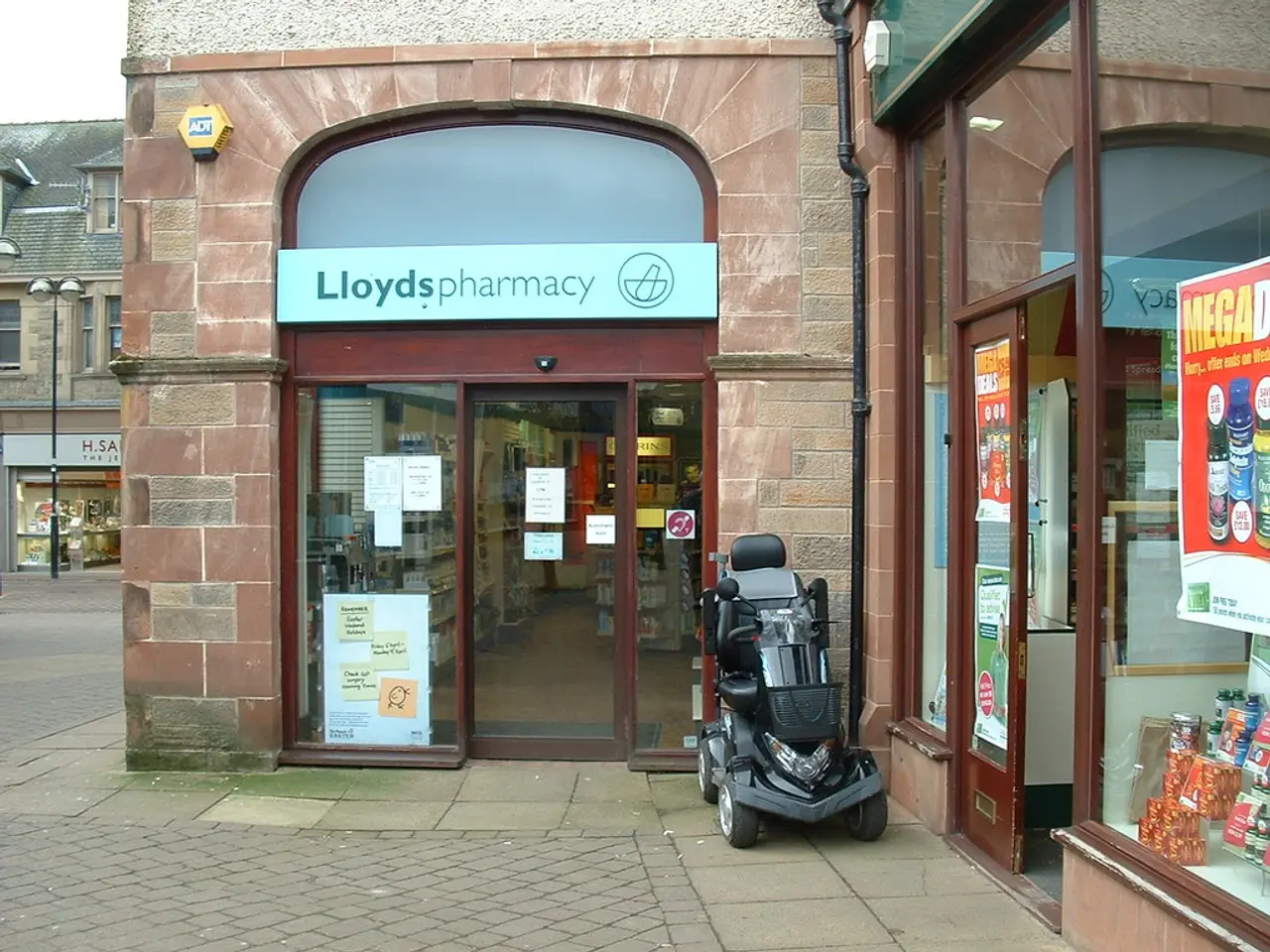Impact on the Generic Pharmaceutical Sector: Mark Cuban's Cost-Plus Pharmaceutical Venture
The Cost Plus Drug Company (CPDC), launched in January 2022 by billionaire investor Mark Cuban, is shaking up the generic drug industry with its unique pricing model. The online-only 503B outsourcing facility focuses on transparency, affordability, and a cash-only model, aiming to provide much-needed prescriptions at a fraction of the price.
CPDC's pricing formula is straightforward: wholesale price + 15% markup + $3 pharmacy fee + $5 shipping. This model bypasses traditional pharmaceutical pricing practices, which often inflate prices to maximize shareholder profits.
In the face of ongoing generic drug shortages, CPDC presents consumers with lower prices and greater access. The company offers more than 100 generic drugs for various conditions such as asthma, heart failure, and cancer at significantly reduced prices. Brand-name drugs offered are about 40% cheaper than usual, while a majority of the generic drugs available on the site are cheaper than most insurance deductibles and copays.
CPDC's focus on transparency sets it apart from traditional pharmacies. The company maintains transparency in cost savings and rebates, eliminating pharmacy benefit managers (PBMs) and directing more funds towards research and development.
The company's approach is gaining traction, with analysts predicting positive revenue growth given ongoing high healthcare costs, showing investor confidence in the company's business model despite it not being publicly traded.
By drastically lowering prices, CPDC improves access to affordable medicine for millions of Americans who otherwise struggle to afford drugs, addressing a major gap flagged by surveys showing many skip doses due to cost. The company's disruption of Big Pharma's traditional profit-driven model is increasing competition and pressuring other generic drug providers to rethink pricing strategies.
Vincent Rajkumar, a Mayo Clinic professor, applauds CPDC’s leadership in rejecting profit chases, instead offering dramatically lower prices through a straightforward markup policy. This shift is seen as a genuine effort to serve patients, with a strong ethical foundation to help Americans access medication affordably.
While CPDC remains a private company and is not publicly traded, its direct market impact depends on continued growth and adoption. The company partners with digital healthcare company Truepill and operates as a 503B facility, subject to FDA oversight and adhering to stringent quality and reporting standards.
In summary, Cost Plus Drug Company is actively disrupting the generic drug market by offering far more affordable pricing through transparency and low markups, thereby enhancing access and creating competitive pressure in an industry traditionally dominated by high costs and opaque pricing. This innovative approach could potentially revolutionize the way generic drugs are priced and accessed in the United States.
- Mark Cuban's Cost Plus Drug Company (CPDC) leverages technology in the business sector, aiming to lower the prices of generic drugs in the health-and-wellness industry.
- By utilizing a simple pricing model that includes a 15% markup, pharmacy fee, shipping cost, and bypassing traditional pharmaceutical practices, CPDC offers prices often lower than insurance deductibles and copays.
- In an attempt to increase transparency, CPDC eliminates the need for pharmacy benefit managers (PBMs) and directs funds towards research and development, especially in the life sciences and science fields.
- CPDC's pricing strategy, focused on affordability, addresses a significant concern in consumer products and retail industries, where surveys show many Americans struggle to afford drugs or even skip doses due to cost.
- The innovative business model of Cost Plus Drug Company has attracted the attention of both analysts and investors, showing potential growth and confidence in challenging the traditional profit-driven model within the manufacturing and finance sectors.
- As the generic drug industry evolves, consulting firms in business and technology may play a crucial role in helping other providers adapt to increased competition and pressure to lower prices, continuing CPDC's disruption in the market.




